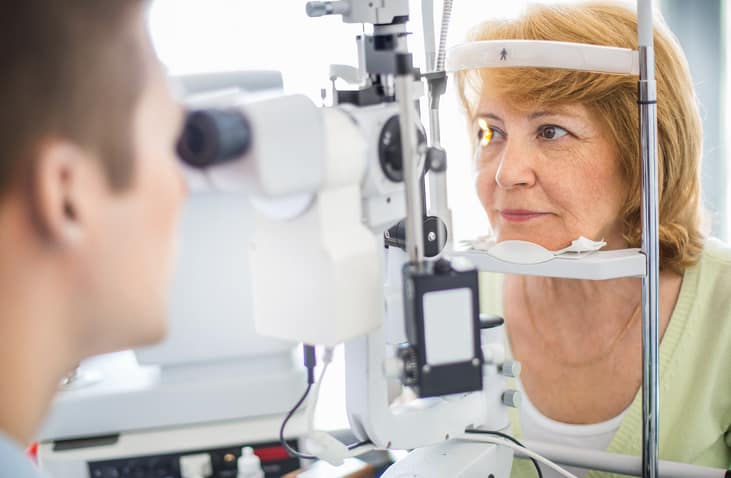6 Age Related Eye Conditions You Need to Know About

As we age, it’s common for our vision to change. With the right care, these changes can be properly managed and treated so that they don’t have a significant effect on your daily life. Read on for useful eye care advice from senior living specialists in Camden County, New Jersey.
Common senior eye health issues:
- Glaucoma. Seniors are at higher risk of developing glaucoma, a group of diseases that cause damage to the eye’s optic nerve. Usually related to high pressure within the fluid of the eye, this serious condition can result in vision loss and blindness. The best way to control this disease is through early detection.
- Dry eye. If you are experiencing burning, gritty, watery and generally irritated eyes, then you may have dry eye syndrome. This results from insufficient tears or poor quality tears that can’t properly lubricate the eye. Your eye doctor will be able to prescribe the right eye drops to restore comfort and protect your vision.
- Age-related macular degeneration. This disease causes the macula (the part of your eye that sees fine details and colors) to deteriorate. This will cause your central vision to worsen (making reading, watching TV and fine work like embroidery difficult) but does not affect your peripheral vision. Early detection is essential to controlling this disease and reducing severe permanent damage.
- Presbyopia. This condition causes the lens of your eye to harden and/or the muscles around the eye to lose elasticity, resulting in difficulty when focusing on close-up objects. Your eye doctor can prescribe a variety of treatments including eyeglasses, contact lenses or laser surgery.
- Retinal detachment. A change in the fluid in your eye can cause your retina (the tissue that senses light) to be pulled from its proper position. This is considered to be a medical emergency and it is essential that you get treatment as quickly as possible to avoid permanent loss of vision. Symptoms to be aware of include a sudden increase in floaters in your vision, light flashes in your eye or the sudden appearance of a curtain over your vision.
- Cataracts. This is a condition that causes the lens in your eye to become clouded, causing your vision to become foggy and making it more difficult to see, especially at night. Usually, early cataracts can be treated by using eyeglasses and stronger lights while more severe cases can be treated in a very safe surgical procedure.
For seniors, it is more important than ever to visit an optometrist for an eye exam at least once a year. Your doctor will be able to keep a record of your eye health and conditions, advise you on how to keep your eyes healthy and provide specialist treatment for any conditions you may have.
For more information on Collingswood and our other New Jersey communities, please contact us today and request a personal tour.




